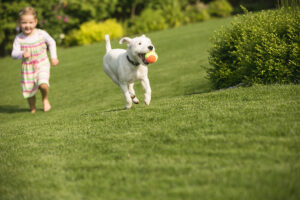
OCD of the shoulder in dogs is a debilitating condition that can be minimized through surgery.
Osteochondritis dissecans, or OCD of the shoulder in dogs, is a painful joint condition that affects the cartilage in a dog’s shoulder. While it may sound complex, understanding this orthopedic issue is crucial for dog owners—especially those with large or rapidly growing breeds. Left untreated, OCD can significantly affect your dog’s mobility and quality of life. Fortunately, surgery offers a promising solution to relieve pain and restore function.
What Is OCD of the Shoulder in Dogs?
OCD of the shoulder in dogs occurs when the cartilage in the shoulder joint develops abnormally and separates from the underlying bone. This creates a flap of cartilage that irritates the joint, leading to inflammation, pain, and lameness. The shoulder is the most commonly affected joint, but OCD can also occur in the elbows, knees, or hocks.
Causes and Risk Factors
Several factors can contribute to the development of OCD of the shoulder in dogs:
- Genetics: Inherited traits can predispose certain breeds to joint problems.
- Rapid growth: Puppies that grow too quickly are at higher risk.
- Nutritional imbalances: Diets too high in calories, calcium, or protein can affect cartilage development.
- Trauma or stress to the joint: Repetitive stress or injury can lead to abnormal cartilage formation.
Symptoms of OCD of the Shoulder in Dogs
Signs of OCD of the shoulder in dogs typically appear between 4 and 12 months of age. Common symptoms include:
- Limping or favoring one front leg
- Pain when the shoulder is touched or manipulated
- Stiffness after rest or exercise
- Reluctance to play or go for walks
- Muscle loss in the affected limb due to disuse
If your dog shows any of these signs, a veterinary examination is essential.
Diagnosing OCD of the Shoulder
To diagnose OCD of the shoulder in dogs, your veterinarian will start with a physical examination and review of your dog’s medical history. Imaging tools such as X-rays or CT scans are often used to confirm the presence of a cartilage flap or joint inflammation. In some cases, arthroscopy—a minimally invasive procedure using a camera—may be employed to view the joint directly.
How Surgery Can Help
When conservative treatments like rest, pain medication, or physical therapy fail to relieve symptoms, surgery is often the most effective option.
Surgical treatment for OCD of the shoulder in dogs typically involves removing the loose cartilage flap and smoothing the surface of the joint to promote healing. This can be done through traditional open surgery or arthroscopically, which involves smaller incisions and a faster recovery time.
Post-Surgical Recovery
After surgery, most dogs experience significant improvement in mobility and a reduction in pain. Recovery typically includes:
- Several weeks of rest and restricted activity
- Physical therapy to rebuild strength and range of motion
- Follow-up exams to monitor healing
With proper care, many dogs return to normal or near-normal function within a few months.
Trust Maryland Veterinary Surgical Services With Your Companion’s Health
Your companion’s health is important, and the team at MVSS is ready to provide the best care possible for your furry family. We are dedicated to combining comprehensive exams and assessments with informative and honest discussions of your companion’s care. Once we have worked with you to decide on the best course of action for your dog, our professionals will use their surgical expertise to work towards the goal of giving your companion an active and pain-free life. We are proud to serve loyal companions in Catonsville and Baltimore. To learn more about our services, give us a call at 410-788-4088 or visit us online. For more information and tips for dog health, follow us on Facebook and Pinterest.
